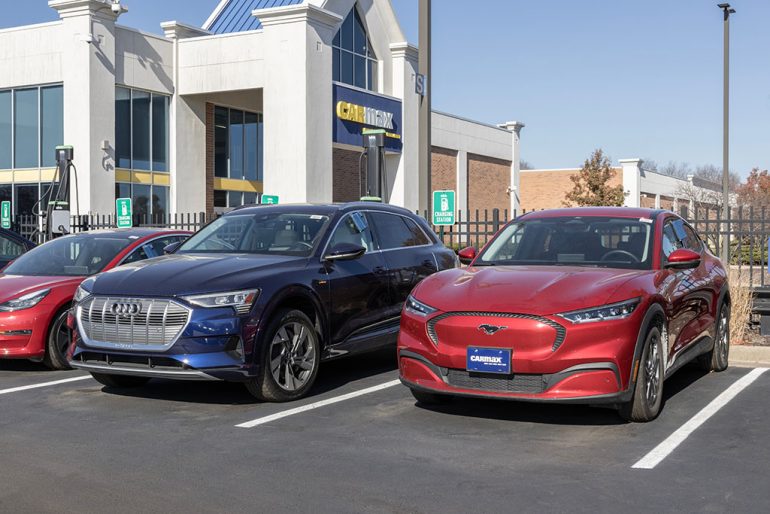
The resale value of electric vehicles (EVs) is experiencing a notable decline, according to Black Book’s historical retention data and future predictions. The chief data scientist at Black Book, Alex Yurchenko, attributes this trend to price cuts on new battery-electric vehicles in 2023, which have subsequently impacted the resale values of 2- to 4-year-old EVs. Yurchenko notes that as new-vehicle transaction prices decrease, there is a corresponding decrease in used prices, intensifying the depreciation of EVs compared to other vehicle types.
The depreciation of used EVs has become more pronounced in recent months, and the situation is expected to persist due to ongoing “price wars” in the new EV market. Black Book anticipates a continuous decline in used-EV prices as new-EV prices continue to drop. This is a challenging scenario for those looking to sell or trade in their used electric vehicles.
Also, don’t forget that you can get discounted new car pricing with a free quote through qualified local dealer partners.
Black Book’s predictions for October 2023 reveal that the average 3-year-old vehicle is projected to retain 66 percent of its original value, down from 73 percent the previous year but up from 51 percent in October 2019. In contrast, the average 3-year-old EV is expected to retain only 49 percent of its original value, a significant drop from 70 percent in the prior year but an improvement from 33 percent in October 2019. Black Book estimates that by October 2026, the average 3-year-old vehicle will retain 56 percent of its original value, while the 3-year-old EV will hold 45 percent.
The increased volatility in EV prices might drive consumers toward leasing rather than purchasing. The unpredictability, exemplified by automakers like Ford cutting prices on EVs such as the F-150 Lightning, makes leasing more attractive to consumers. Leases, especially those subsidized by the electric vehicle tax credit, offer a more secure and cost-effective option for those hesitant about potential price drops.
The Inflation Reduction Act provides up to a $7,500 tax credit for new-EV retail buyers and commercial buyers. The credit benefits lessors, who can decide whether to pass on the savings to customers. Some automakers have actively embraced EV leasing due to fewer restrictions on qualifying EVs compared to the new-vehicle retail credit.
However, industry experts caution that the push for EV leasing may result in a surplus of used EVs in the market in the coming years. Edmunds insights director Ivan Drury acknowledges the challenges, describing the used EV market as being “hammered” by the new EV market. While leasing helps in the short term, there is a potential long-term challenge of managing fleets of used EVs as leases expire. Despite this concern, industry experts recognize the complexities of the situation, acknowledging that automakers may feel compelled to explore leasing as a viable option amidst the evolving landscape of the EV market.
Source: Automotive News (subscription required)